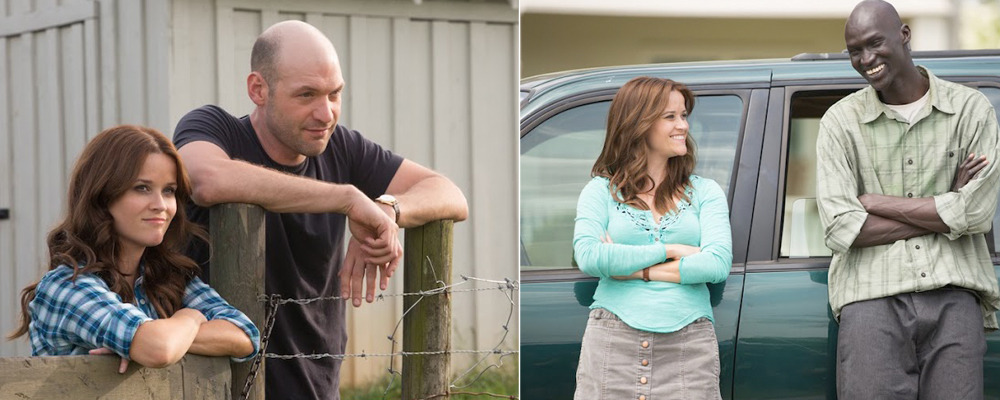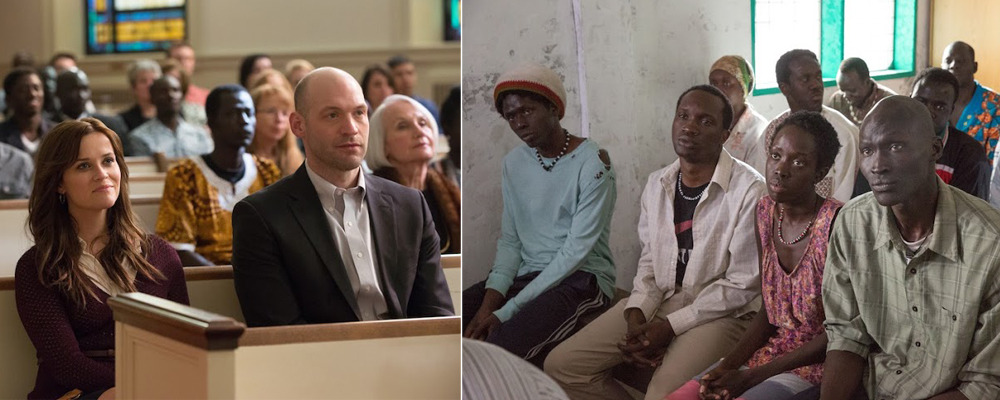Film Review: ‘The Good Lie’
Emily Manthei
Did you know that a civil war has been going on in Sudan for almost 20 years? The Good Lie assumes that its audience is unaware of this fact. The heartwarming human-rights drama will patronize moviegoers while also bringing them to tears. Starring Reese Witherspoon, the story follows Sudanese youths caught in the middle of one of the longest and largest humanitarian disasters of our age — and in spite of the film’s considerable flaws, you’d have to be made of stone not to be moved. Showing all-too-real Sudan unrest in the ’80s and ’90s, The Good Lie proves that once in a very great while, authentic cultural substance can make up for thinly drawn characters, uneven pacing and a less-than-evocative title.
The film begins in 1987, when seven children flee the decimation of their village by North Sudanese fighters. These young characters then make a grueling desert journey, all while fighting famine and attacks by soldiers, and only four survive to arrive at a refugee camp on the Kenyan border. The film flash-forwards to 2001, when Memere (played by Arnold Oceng), Jeremiah (Ger Duany), Paul (Emmanuel Jal) and Abital (Kuath Wiel) enter the U.S. via a real-life refugee resettlement program that brought 3,600 Sudanese to the States. It’s here that we meet “naïve/shallow” unemployment agency rep Carrie (Reese Witherspoon in a supporting role) and a Faith-Based Charity volunteer (Sarah Baker). The rest of the film is a fish-out-of-water tale of culture shock, assimilation and PTSD set in Kansas City, followed by a rushed cycle of regret and redemption that doesn’t give audiences time to digest its significance.
The Good Lie shares its premise with the Sundance-winning documentary God Grew Tired of Us, but it fails to deliver the doc’s authentic portrayals of unique individuals. The fictionalized characters derived from Screenwriter Margaret Nagle’s interviews with real-life Sudanese “Lost Boy” refugees are melded into “a composite story that was representative of at least some of what the Lost Boys went through,” but it deprives these characters of any depth, as a composite does not a compelling character make. While each lead has a signature trait — Jeremiah, the Bible-toting preacher; Memere, the aspiring doctor; Paul, the “good with his hands” mechanic; and Abital, “the mother figure” — those traits lack dimension, reading like trite story devices despite the heartfelt and gallant performances by the Sudanese actors. It also doesn’t help that they interact with Witherspoon’s generic “Southern woman.”
The film’s title refers to a selfless moment in the 1987 trek to Kenya when the group is pursued by soldiers, and it’s obvious that the “good lie” that ensues must come back around — and it does, in spite of all odds and credibility. It’s a small thematic thread that doesn’t evoke a sense of the film’s characters, spirit or tone. While the film is failed by its script and director, The Good Lie does capture some genuinely evocative moments of culture shock and enthusiasm that are both tear-jerking and funny, like when the three young men hear the old joke “Why did the chicken cross the road?” and laugh hysterically at a punch line that seems banal to Americans. The sporadic moments of levity and fast-paced sequences make The Good Lie engaging despite its flaws and make reviewers feel bad for critiquing an important film that should be seen by many.
“The Good Lie” hits theaters on October 3.


